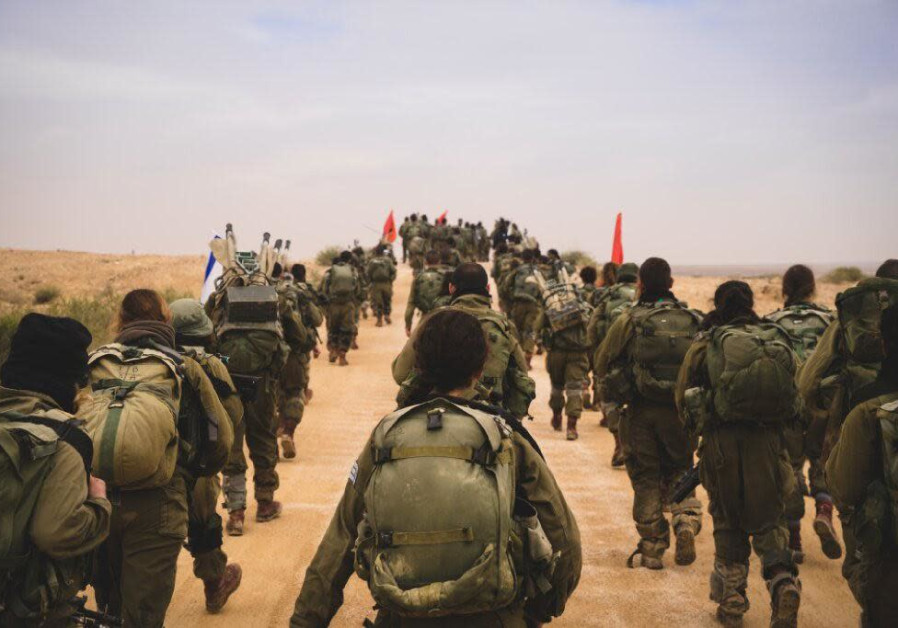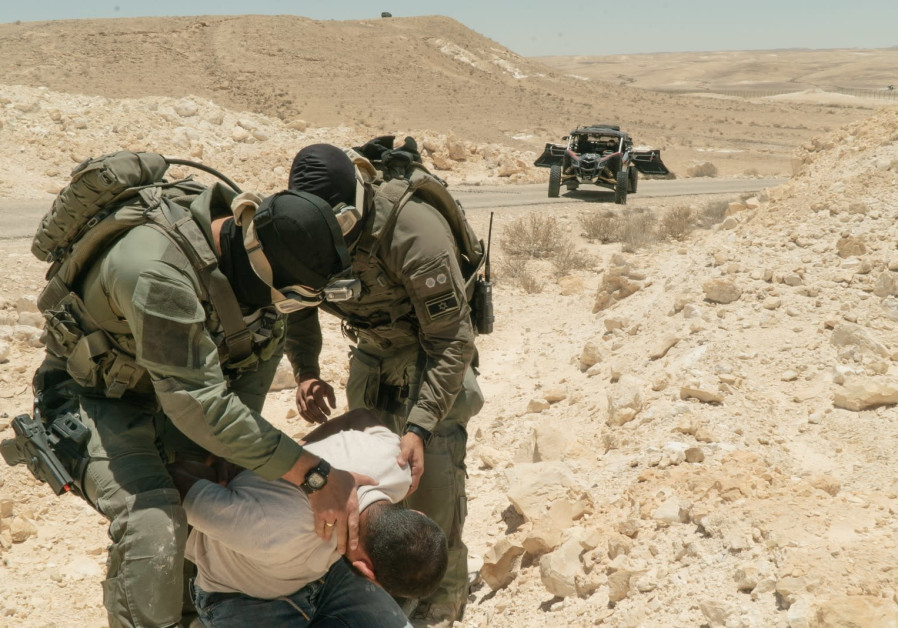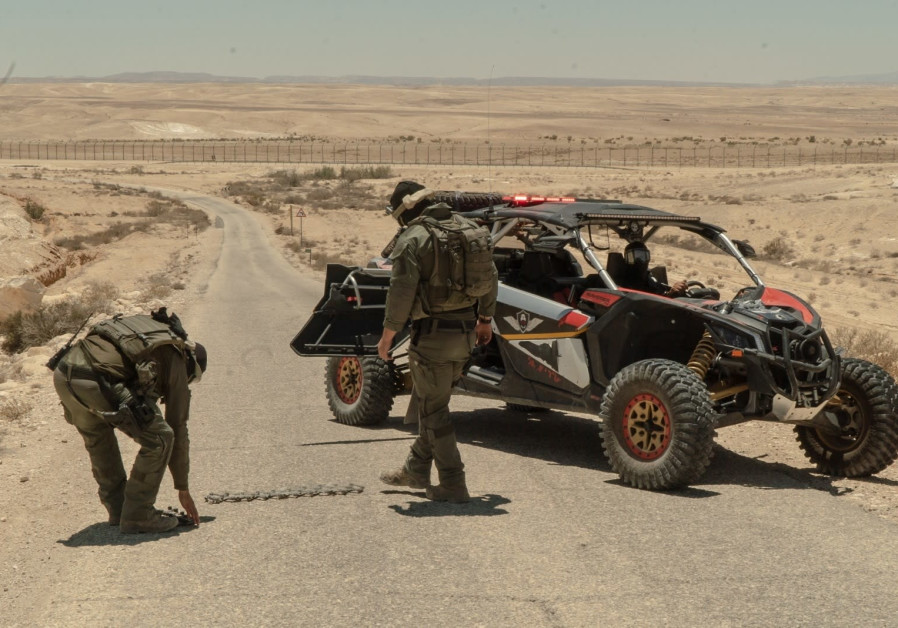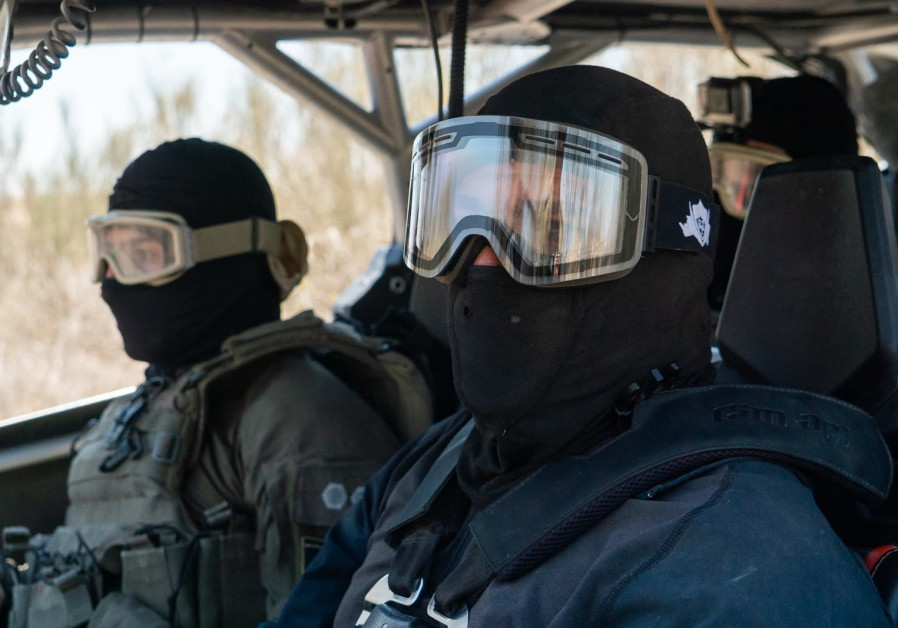The IDF, together with the police, have launched the Magen HaNegev program to clamp down on lawlessness and drugs and weapons smuggling along the Egyptian border and improve overall security in the Negev.According to the military and the police, while weapons and drugs smuggling has been rampant in the Negev for decades, they have only recently begun to view it as a risk to national security. “First, there’s drugs smuggling and then weapons are smuggled across the border and then you can have terror attacks,” one senior officer explained. Over the years, the 240-kilometer long border between Israel and Egypt’s Sinai Peninsula has seen numerous terror attacks and countless smuggling attempts. Cairo and Jerusalem have been reported by foreign media to have cooperated closely in the Sinai peninsula in the fight against ISIS terrorists and smuggling since Egyptian President Abdel Fatah al-Sisi rose to power.Sisi has waged extensive military operations against ISIS in the Sinai, and while the terror group has lost much of its strength, the group remains active and despite its dwindling size it continues to carry out deadly attacks against Egyptian security forces. In 2019, there were more than 350 Egyptian soldiers killed in between 3-10 attacks per week in the Sinai. The attacks dropped to 2-5 per week two years later after Cairo was able to regain control over certain villages in the restive peninsula.While the Islamic State is not an imminent threat to Israel, drugs and weapons smuggling by Bedouin from Sinai into Israel remains a major concern for IDF troops who are stationed along the border. According to IDF figures, the amount of drugs smuggled across the border has been cut by half.In 2019, there were 350 smuggling attempts identified and 30 were thwarted. The next year, out of 280 smuggling attempts, the IDF stopped about 60 and confiscated close to 400 large bags of drugs, 20 cars, and arrested some 20 smugglers. Since January there have been 120 smuggling attempts with over 40 thwarted.The total cost of the drugs smuggled into Israel has decreased from $4 billion in 2019 to $1.86 billion in 2020.Launched in March, the Magen HaNegev program aims to fight smuggling, infiltration across the border, thefts from military bases, and the cultivation of marijuana in live-fire zones.
Over the years, the 240-kilometer long border between Israel and Egypt’s Sinai Peninsula has seen numerous terror attacks and countless smuggling attempts. Cairo and Jerusalem have been reported by foreign media to have cooperated closely in the Sinai peninsula in the fight against ISIS terrorists and smuggling since Egyptian President Abdel Fatah al-Sisi rose to power.Sisi has waged extensive military operations against ISIS in the Sinai, and while the terror group has lost much of its strength, the group remains active and despite its dwindling size it continues to carry out deadly attacks against Egyptian security forces. In 2019, there were more than 350 Egyptian soldiers killed in between 3-10 attacks per week in the Sinai. The attacks dropped to 2-5 per week two years later after Cairo was able to regain control over certain villages in the restive peninsula.While the Islamic State is not an imminent threat to Israel, drugs and weapons smuggling by Bedouin from Sinai into Israel remains a major concern for IDF troops who are stationed along the border. According to IDF figures, the amount of drugs smuggled across the border has been cut by half.In 2019, there were 350 smuggling attempts identified and 30 were thwarted. The next year, out of 280 smuggling attempts, the IDF stopped about 60 and confiscated close to 400 large bags of drugs, 20 cars, and arrested some 20 smugglers. Since January there have been 120 smuggling attempts with over 40 thwarted.The total cost of the drugs smuggled into Israel has decreased from $4 billion in 2019 to $1.86 billion in 2020.Launched in March, the Magen HaNegev program aims to fight smuggling, infiltration across the border, thefts from military bases, and the cultivation of marijuana in live-fire zones. The program includes the dedicated recruitment of individuals who receive combat training to guard IDF bases, a joint IDF/Israel police unit to destroy drugs greenhouses throughout the Negev and reinforcement of police units in the Negev.As part of the program, the IDF and the police’s Magen unit launched the Magen Nitzana operation in early May focused on stamping out drug smuggling along the border with Egypt as well as thefts in both civilian communities and military bases. It also saw security forces focus on counter-terrorism and increased intelligence gathering.The operation, which took place in the area of Nitzana, was led by the Paran brigade in cooperation with the police, Shin Bet internal security agency, and other military forces as well as Nature and Parks Authority. During the operation troops were able to destroy 100 greenhouses including in the Tze’elim area, and thwarted several drugs smuggling cells with a number of operatives arrested, and seizing vehicles and large amounts of drugs.Though it lasted only two weeks, senior officers involved say that the mindset of the operation continues with IDF troops and police officers set on stopping as many attempts as possible.In the majority of smuggling attempts, groups of men drive up to the border fence on the Egyptian side of the border and place ladders on the 10-foot-high fence that they quickly climb up and throw over bags of drugs to Israeli Bedouin smugglers waiting on the other side.
The program includes the dedicated recruitment of individuals who receive combat training to guard IDF bases, a joint IDF/Israel police unit to destroy drugs greenhouses throughout the Negev and reinforcement of police units in the Negev.As part of the program, the IDF and the police’s Magen unit launched the Magen Nitzana operation in early May focused on stamping out drug smuggling along the border with Egypt as well as thefts in both civilian communities and military bases. It also saw security forces focus on counter-terrorism and increased intelligence gathering.The operation, which took place in the area of Nitzana, was led by the Paran brigade in cooperation with the police, Shin Bet internal security agency, and other military forces as well as Nature and Parks Authority. During the operation troops were able to destroy 100 greenhouses including in the Tze’elim area, and thwarted several drugs smuggling cells with a number of operatives arrested, and seizing vehicles and large amounts of drugs.Though it lasted only two weeks, senior officers involved say that the mindset of the operation continues with IDF troops and police officers set on stopping as many attempts as possible.In the majority of smuggling attempts, groups of men drive up to the border fence on the Egyptian side of the border and place ladders on the 10-foot-high fence that they quickly climb up and throw over bags of drugs to Israeli Bedouin smugglers waiting on the other side. While the IDF has been able to reduce the time it takes to arrive to such events to several minutes, the smugglers sometimes use drones and have military radios that alert them to troops who are on the way.But the IDF and police use advanced intelligence gathering means as well as helicopters and off-road vehicles to catch those involved in smuggling attempts, from the man picking up the drugs that were thrown over the fence to the head of the smuggling ring.According to the officers involved, most of the smuggling attempts happen in the middle of the night and there’s not one arrest that doesn’t end in violence or where the suspects disappear into the vast Negev desert before they are caught by the police.
While the IDF has been able to reduce the time it takes to arrive to such events to several minutes, the smugglers sometimes use drones and have military radios that alert them to troops who are on the way.But the IDF and police use advanced intelligence gathering means as well as helicopters and off-road vehicles to catch those involved in smuggling attempts, from the man picking up the drugs that were thrown over the fence to the head of the smuggling ring.According to the officers involved, most of the smuggling attempts happen in the middle of the night and there’s not one arrest that doesn’t end in violence or where the suspects disappear into the vast Negev desert before they are caught by the police. In some smuggling attempts, troops have also been fired upon leading them to fire back-sometimes killing the smugglers.According to IDF figures, there have been 20 violent arrests of those involved in smuggling since the beginning of the year. In 2020, there were 40 violent arrests and 50 violent arrests the previous year.Some 210,000 Bedouin live in the Negev, 90,000 of them in unrecognized villages that are largely cut off from basic amenities and municipal services and in structures that were built without permits, placing them at risk of demolition by Israeli authorities.Those living in the unrecognized village suffer from extraordinarily high rates of unemployment and crime and many live below the poverty line. The money that can be made by joining smuggling rings or stealing weapons from IDF bases and is a motivating factor.
In some smuggling attempts, troops have also been fired upon leading them to fire back-sometimes killing the smugglers.According to IDF figures, there have been 20 violent arrests of those involved in smuggling since the beginning of the year. In 2020, there were 40 violent arrests and 50 violent arrests the previous year.Some 210,000 Bedouin live in the Negev, 90,000 of them in unrecognized villages that are largely cut off from basic amenities and municipal services and in structures that were built without permits, placing them at risk of demolition by Israeli authorities.Those living in the unrecognized village suffer from extraordinarily high rates of unemployment and crime and many live below the poverty line. The money that can be made by joining smuggling rings or stealing weapons from IDF bases and is a motivating factor. According to IDF figures, Israeli smugglers can make $50,000-$70,000 in a single smuggling attempt that costs $150,000, while those on the Egyptian side of the border can earn $25,000-$35,000 for an attempt that would cost them $50,000. For example, the head of the ring on the Israeli side would earn $10,000 (compared to $5,000 in Sinai), the lookout man could earn between $5,000-$10,000 and the courier could earn between $15,000-$20,000.Officers are aware that should they succeed in wiping out the drugs and weapons smuggling across the border, there might be an increase in crime in the Negev.
According to IDF figures, Israeli smugglers can make $50,000-$70,000 in a single smuggling attempt that costs $150,000, while those on the Egyptian side of the border can earn $25,000-$35,000 for an attempt that would cost them $50,000. For example, the head of the ring on the Israeli side would earn $10,000 (compared to $5,000 in Sinai), the lookout man could earn between $5,000-$10,000 and the courier could earn between $15,000-$20,000.Officers are aware that should they succeed in wiping out the drugs and weapons smuggling across the border, there might be an increase in crime in the Negev. “It’s very challenging,” said one senior officer. “There are strong incentives to smuggle and commit crimes.”And according to another officer, there’s no vacuum when one smuggler is taken out of the equation.“When someone is caught there’s another family member who will take their place. There’s too much money involved for there to be a void.”
“It’s very challenging,” said one senior officer. “There are strong incentives to smuggle and commit crimes.”And according to another officer, there’s no vacuum when one smuggler is taken out of the equation.“When someone is caught there’s another family member who will take their place. There’s too much money involved for there to be a void.”






